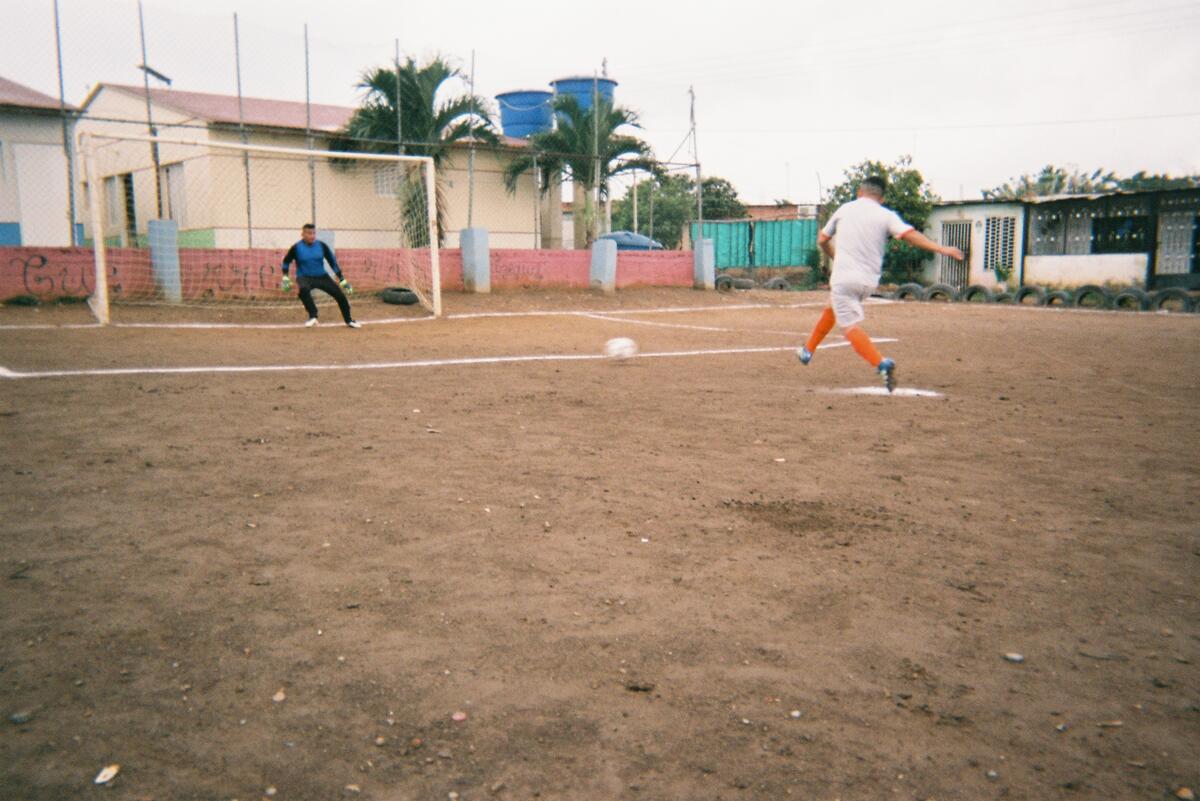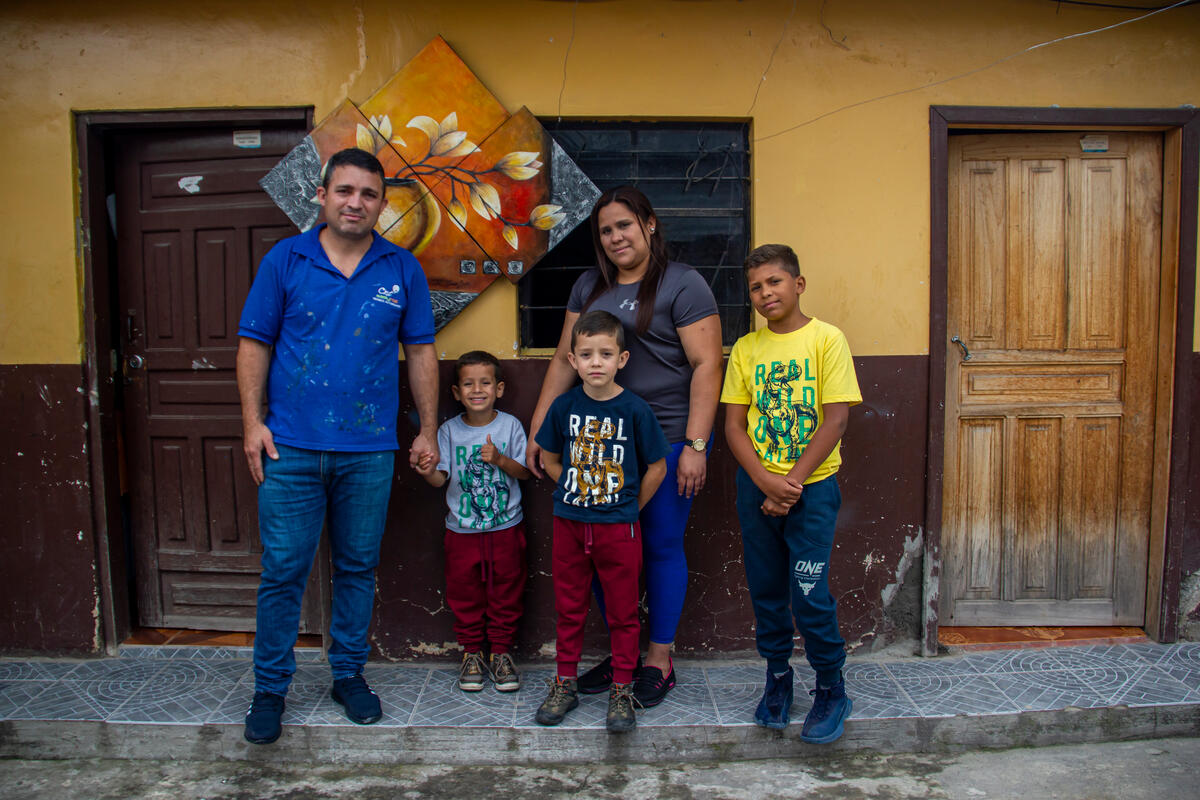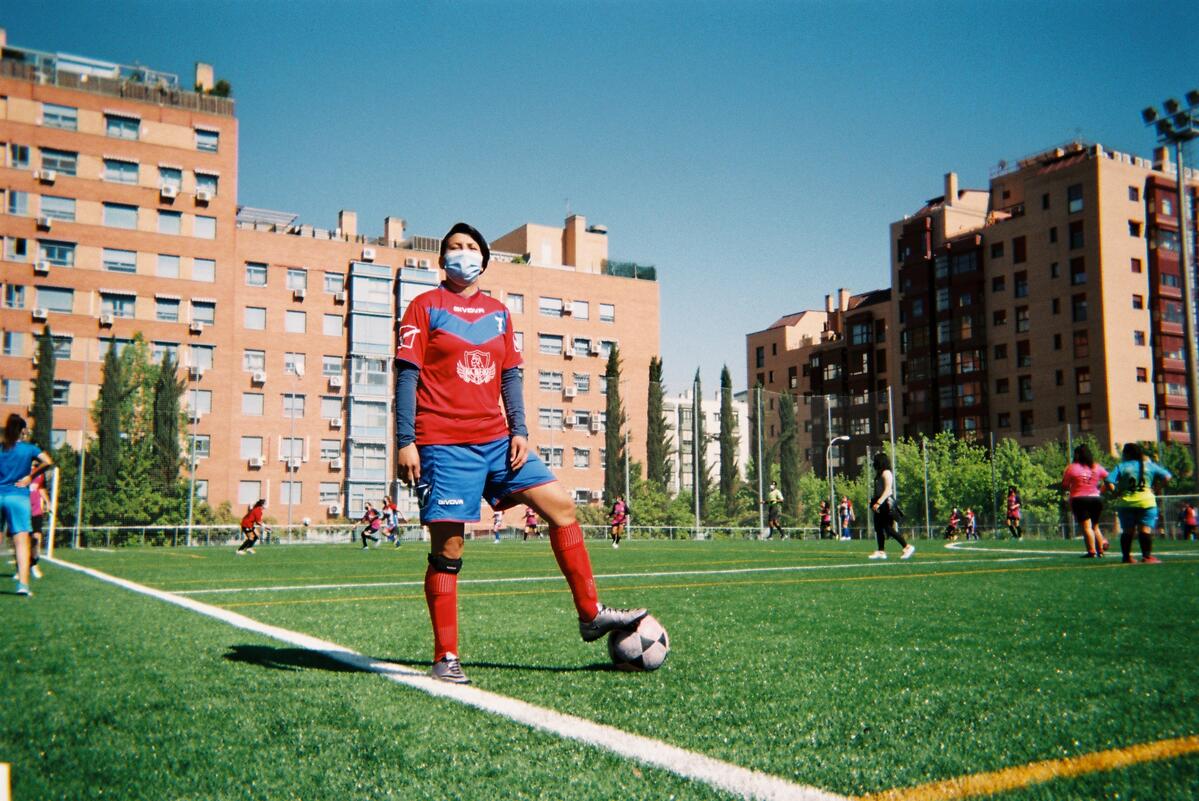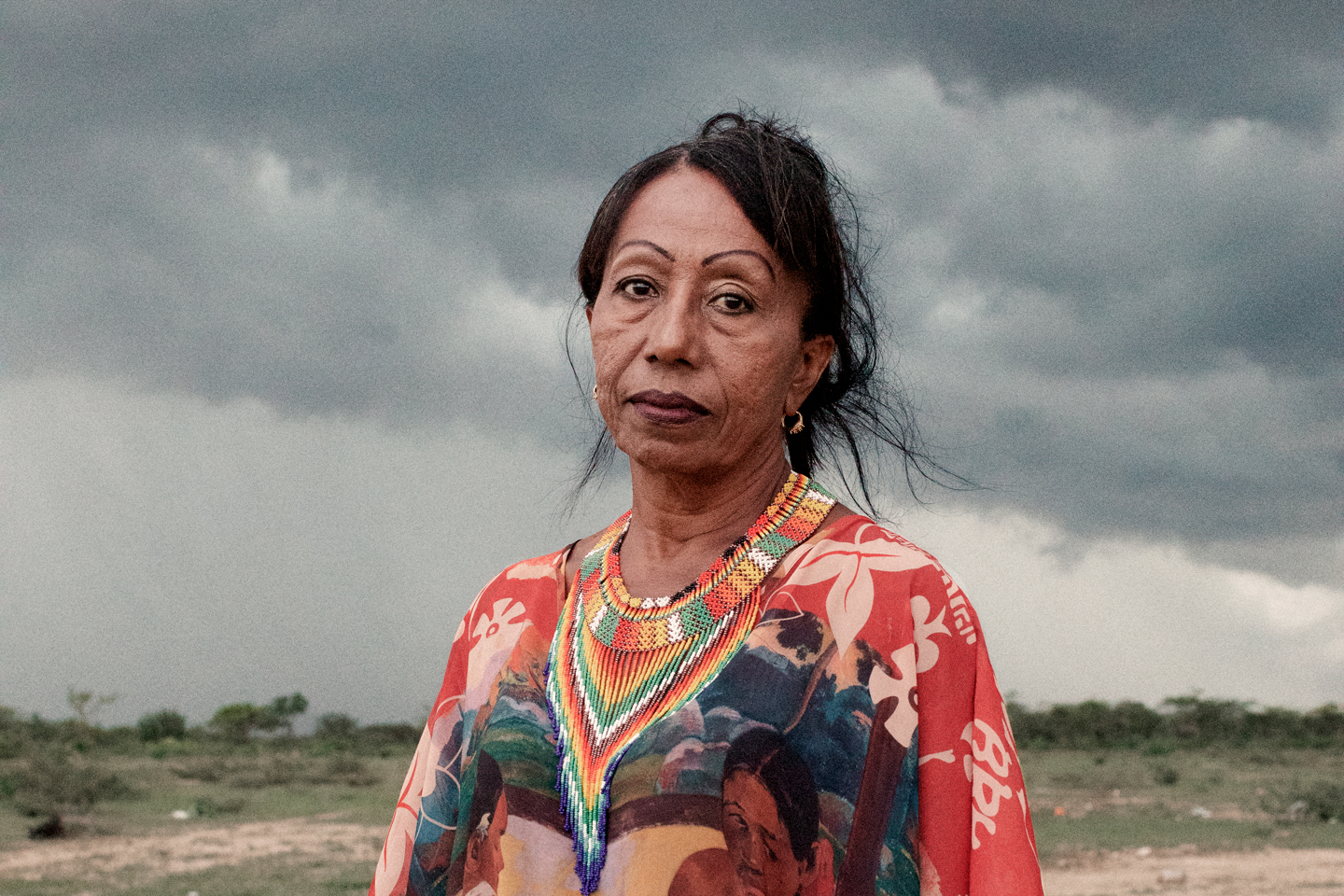Colombia: staff dispatched to two areas in Colombia's Chocó region
Colombia: staff dispatched to two areas in Colombia's Chocó region
UNHCR has dispatched staff to two areas in Colombia's Chocó region following recent reports of new, large-scale displacement. A UNHCR team travelling to the area this past weekend has confirmed that 556 people from indigenous Embera communities have been forced to flee their ancestral homelands along the Opogado and Napipi rivers because of heavy fighting between left-wing guerrillas and right-wing paramilitaries. The displaced, mostly women, children and elderly, are from the indigenous communities of Egoróquera, Unión Baquiaza and La Playita and have fled to Boca de Opagadó and Puerto Antioquia. They report that they were forced to flee because of the presence in their villages of irregular combatants, who occupied their houses and took their food. Their most urgent needs are clean water, sanitation and health assistance. The displacement comes nearly two years after the massacre of 119 people sheltering in a church in Bojaya in this same area, and puts Bojaya again at the epicentre of a growing humanitarian crisis.
UNHCR has also received reports that some 675 persons from the indigenous communities of Union Cuití and Hoja Blanca on the Napipi River, have headed to Loma de Bojaya following armed clashes between FARC guerrillas and AUC paramilitaries. The government's Social Solidarity Network has sent food to this area from Quibdó. At the request of the communities, UNHCR and the UN Office for the Coordination of Humanitarian Affairs facilitated an interagency follow up mission to Opogado and Loma de Bojaya which left Bogota yesterday (Monday 29).
Fighting between FARC guerrillas and AUC paramilitaries in this zone of north-western Colombia, close to the border with Panama, has been intensifying since February, producing a cascading effect among the mostly indigenous and Afro-Colombian population who have fled from one community to another along the Opogado, Napipi and other tributaries of the Atrato River.
For months, UNHCR and human rights organizations in Colombia and elsewhere have been drawing attention to the deteriorating humanitarian situation in this region, considered the poorest in Colombia, where the parties to the conflict are keeping indigenous and Afro-Colombian communities virtually under siege.
UNHCR supports indigenous and Afro-Colombian organisations through training, documentation campaigns and funding for community initiatives. UNHCR has made considerable efforts to raise awareness and bring the attention of the international community to this region. Assistant High Commissioner Kamel Morjane made a plea for urgent action to the Colombian authorities and the international community after visiting the area in January.
Meanwhile further to the south, hundreds of Colombians crossed the border into Ecuador fearing clashes between the Colombian army and guerrillas. For the second time in less than a week, between 350 and 500 Colombians arrived at the Ecuadorian border town of Tufiño on Wednesday 24 March, only to return to Colombia the next morning once the situation in their home town of Cristo Rey, Nariño province, was reported to be calm. A similar movement took place on Sunday 21 March.
During their brief stay, the majority of the Colombians were lodged in the local sports stadium, while some stayed with family or friends. They received basic humanitarian and health assistance from the local Ecuadorian authorities.
A few Colombians stayed behind in Ecuador, including two who were in need of medical assistance. They were assisted by the Ecuadorian Red Cross. The Red Cross remained in the area for 48 hours in case their services were required.
As a contingency in case of possible movements in the future, the Ecuadorian Refugee Office of the Ministry of Foreign Affairs and UNHCR have prepared and delivered humanitarian kits, which are being kept in the local Catholic Church in Tulcan and Tufiño. The kits include mattresses, blankets, a stove and kitchen sets for cooking.
In the last few weeks, the media has reported fighting between left-wing FARC guerrillas and the Colombian Army in the southern Colombian provinces of Nariño and Putumayo, as well as efforts to reinforce security at the border. UNHCR reminds all governments that any measures to reinforce border security should not contravene their international obligations to ensure the right to claim asylum.









